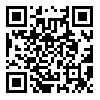目的 分析胶质瘤术后患者早期心理社会适应现状及其影响因素。方法 选取119例术后辅助放化疗的胶质瘤患者为研究对象,采用一般资料调查表、疾病心理社会适应问卷、健康认知评价量表(CAHS)、医学应对问卷量表(MCMQ)对其进行调查,并采用多元线性回归模型分析患者早期心理社会适应的影响因素。结果 胶质瘤术后患者早期疾病心理社会适应问卷得分为(76.02±13.17)分,属于较差水平。不同家庭人均月收入、疾病部位、主要照顾者、二次手术情况的胶质瘤术后患者早期疾病心理社会适应问卷得分差异具有统计学意义(P<0.05)。胶质瘤术后患者早期疾病心理社会适应问卷得分与CAHS总分及CAHS中的挑战、有害/失去、威胁维度得分呈正相关,与CAHS中的有益/不相关维度得分呈负相关,与MCMQ总分及MCMQ中的面对、回避、屈服维度得分呈正相关(P<0.05)。家庭人均月收入、主要照顾者、二次手术、医学应对、认知评价是胶质瘤术后患者早期心理社会适应的影响因素(P<0.05)。结论 胶质瘤术后患者早期心理社会适应属于较差水平,家庭人均月收入、主要照顾者、二次手术、认知评价、医学应对是胶质瘤术后患者早期心理社会适应的影响因素。
广西医学 页码:1495-1500
作者机构:梁新慧,在读硕士研究生,护士,研究方向为神经外科护理。
基金信息:军队护理创新与培育专项计划创新项目(2021HL041);空军军医大学第二附属医院护理新技术新业务项目(院护〔2023〕1号);空军装备综合研究科学研究一般(自主)项目(KJ2023C0KYD03)
- 中文简介
- 英文简介
- 参考文献
Objective To analyze the current status of early psychosocial adjustment in patients with glioma after surgery and its influencing factors. Methods A total of 119 patients with glioma undergoing postoperative adjuvant chemoradiotherapy were selected as the research subjects. The general data inventory, self⁃report psychosocial adjustment to illness scale, Cognitive Appraisal of Health Scale (CAHS), Medical Coping Modes Questionnaire (MCMQ) were employed to perform investigation on them, and the influencing factors for early psychosocial adjustment of patients were analyzed by using the multivariate linear regression model. Results The score of self⁃report psychosocial adjustment to illness scale was 76.02±13.17 in patients with glioma during early postoperative period, which belonged to relatively poor level. There were statistically significant differences in the score of self⁃report psychosocial adjustment to illness scale between patients with glioma during early postoperative period who had different per capita monthly household incomes, different disease sites, different main caregivers, and suffered from a second surgery (P<0.05). Self⁃report psychosocial adjustment to illness scale score positively correlated with CAHS total score and the scores of challenge dimension, harmfulness/losing dimension, and threat dimension in CAHS, whereas negatively correlated with the score of helpfulness/irrelevance dimension in CAHS, as well as positively correlated with MCMQ total score and the scores of confronting dimension, avoidance dimension, and yielding dimension of MCMQ (P<0.05). Per capita monthly household income, main caregivers, second surgery, medical coping, and cognitive assessment were the influencing factors for early psychosocial adjustment in patients with glioma after surgery (P<0.05). Conclusion Early psychosocial adjustment of patients with glioma after surgery belongs to relatively poor level. Per capita monthly household income, main caregivers, second surgery, cognitive assessment, and medical copying are the influencing factors for early psychosocial adjustment in patients with glioma after surgery.
-
无




 注册
注册 忘记密码
忘记密码 忘记用户名
忘记用户名 专家账号密码找回
专家账号密码找回 下载
下载 收藏
收藏
